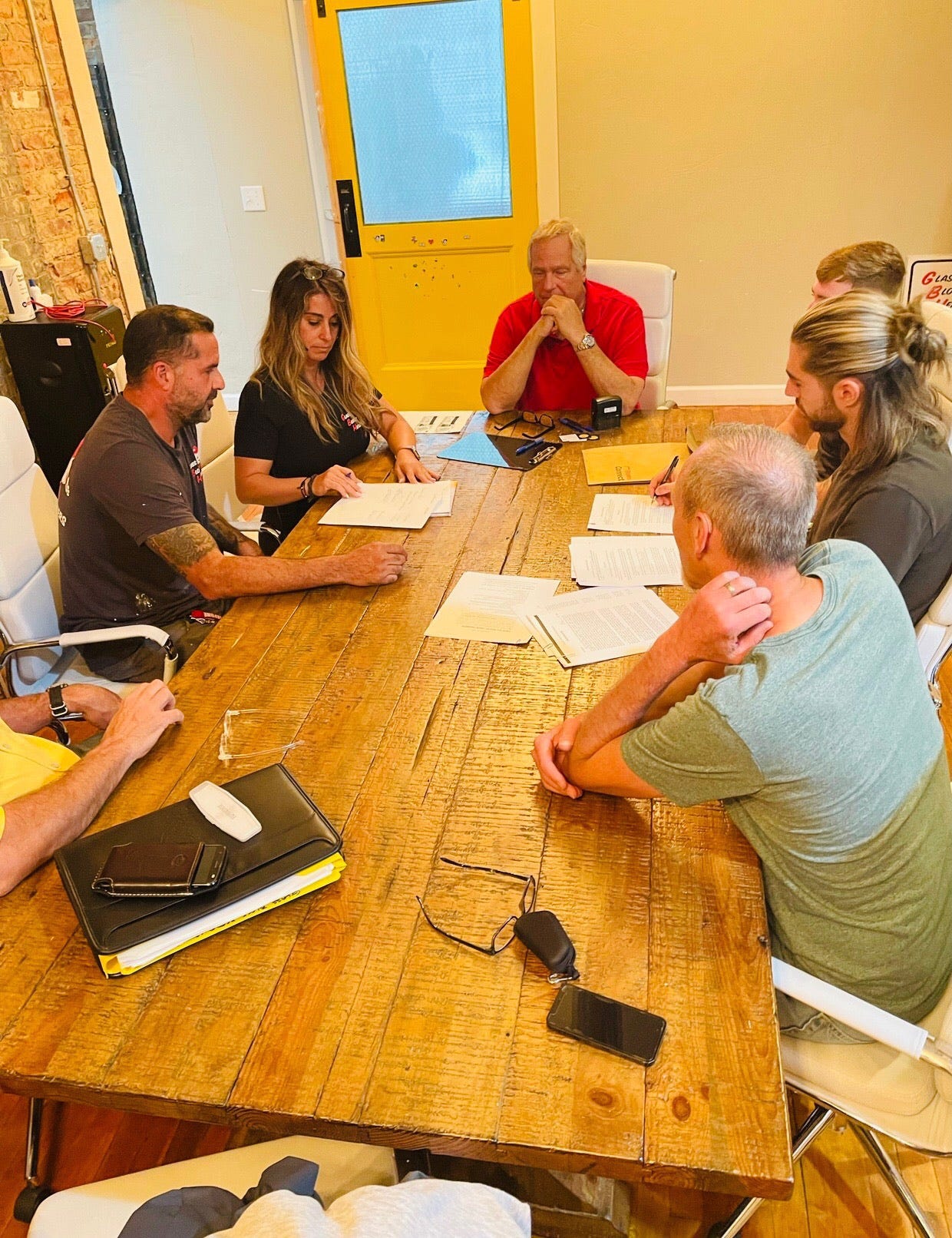Peying Attention to Peyton ✈️
Peyton Zachrich
Small Business Digital Guide Spotlight Series.
Q: Where did you start out in the business world and where are you now?
Peyton: it depends on what you count as starting out. I’ve been doing entrepreneurial-type things since I was like 4, honestly. My first ever journey into it was when my grandpa gave me some seedcorn. My Dad had a garden at the time so I decided to plant them. For whatever reason, my Dad’s own plants died, so I offered mine to him for a price.
After that, I did tons of different stuff as a kid. I started a pawn shop during recess in 3rd or 4th grade, different little mowing and raking companies when I was growing up, and in college, I started an E-Commerce business with my little brother. It didn’t end up gaining traction, but it actually taught me a lot and helped improve my mental models about how to run a successful business.
In my last semester before graduating with a degree in Finance from Akron, a friend of mine told me about real estate investing. I think about things in terms of numbers, so I never quite understood it but he was the one who showed me how the concept really plays out. Once I understood it, I became extremely interested in it. Right before I graduated, I decided to buy a really distressed real estate company. I was able to turn it around relatively smoothly and then I started my career in the corporate path. The same week, I decided to take on another distressed real estate project. The second one was a much harder turnaround. It was very much an extreme emergency of business, as things go. It took a long time to turn around and was extremely challenging to take on while pursuing a corporate career simultaneously. I couldn’t even tell my coworkers what I had going on outside of work. During lunch, I’d lock myself in this little room eating and making real estate calls. I’d be on call at the gym, in bed, basically at all times. I was sweating for a while. Fortunately, we went from exploding, to eventually stable, and then finally we reached the point where we had this thing where we wanted it. We could finally grow and take on new projects.
That’s pretty much where I’m at with that now. I left my corporate job about 8 months ago to go all-in as an entrepreneur We just bought a second self-storage facility in August and hope to buy another one soon. I really like self-storage. People have a lot of stuff and always will. I’m currently very close to buying another small business here in Cleveland that makes and installs glass-box windows.
Peyton purchasing the glass-box windows business in Cleveland, Ohio.
Q: What motivated you to become self-sufficient and leave the corporate path you were on?
Peyton: I think that I had always predetermined that I was going to do it. I have such an extreme personality in the sense of really caring about freedom a lot. Ever since I was young, autonomy has been my highest value. The ability to just be me, be authentic, and live the life that aligns with that and brings the maximum amount of growth to myself.
Originally I had a 10-year plan of working my way up the corporate ladder and then making the jump on my own when I was “ready”. Due to some of the opportunities I got early on, though, the plan definitely got sped up. I was only in corporate for about a year and a half before I made the jump. I remember trying to do both and thinking “man, if only I could just focus on one”. Once I made it through though, I realized that I was so glad that I did both. That foundation really gave me the experience and comfort that I needed to make the jump on my own.
Q: Starting a successful small business is no small feat. We’ve all heard the stats: about 20% fail within the first year, yet, this sector of the economy is so integral. If someone who was interested in becoming a small business owner came to you for advice -- or perhaps you got a chance to talk to yourself at the beginning of your journey -- what’s one story or piece of advice that you would give that person?
Peyton: Before you get into it, you have to know what you’re getting into. You have all the skin in the game. When you have a bad day, you won’t just have an unpleasant couple of hours. You’ll have the full consequences reach you, so things will be more emotional. You no longer have a boss, you no longer have mentors unless you’re specifically seeking them out, so you have to understand that the most important thing to manage is yourself. You have no idea what problem is actually going to sink you vs what problem is actually going to be easy to solve. The mental game-
Q: Kinda like being a golfer or a tennis player, huh?
Peyton: Exactly. Managing yourself is the most challenging part so you have to go about it the right way for yourself.
Q: If you could put it into just one single quality or word, what does the prospective small business owner need?
Peyton: Mindfulness. The ability to be self-aware and be able to admit when you get stuff wrong. Be able to bring yourself out of your own neurosis back into the present moment to be able to accomplish what needs to be done.
Q: Lastly, at what point during your journey did you find FinMango, and what attracted you to the organization
Peyton: I believe that it was during the spring of 2018 while I was in college at Akron. Hector, a friend of mine, introduced me to FinMango and encouraged me to join. He introduced me to Scott (Glasgow) and we immediately hit it off and realized that I needed to get involved with this. I’ve always been super interested in financial literacy as a means of taking control over your own life and I thought FinMango was an effective way to do that. The curriculum is effective, the energy is great, and it’s more about getting things done than bureaucracy. In the first project that I worked on, we made French video curriculum for our partnership with the organization in Togo. It’s been an unforgettable experience for me.
Interested in small business resources? Check out our Small Business Digital Guide! - In partnership with the Wahltinez Foundation, our goal is to help small business owners effectively bring their business to the digital era.





